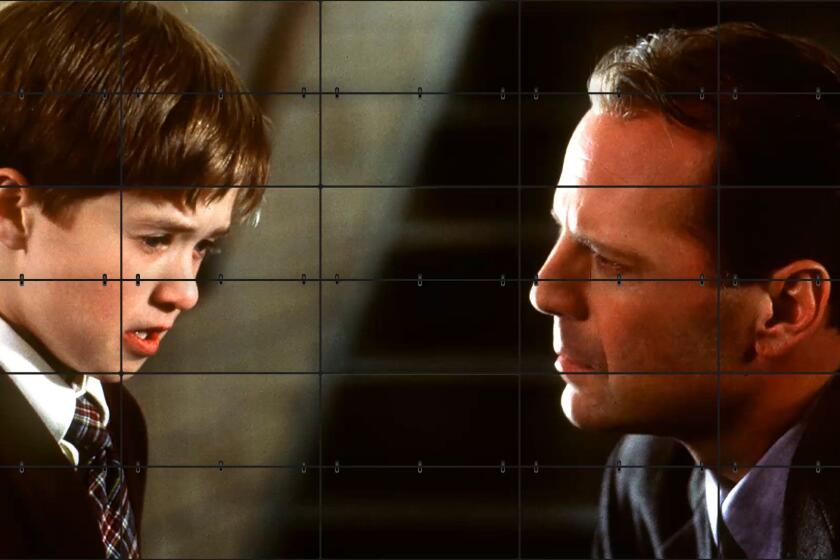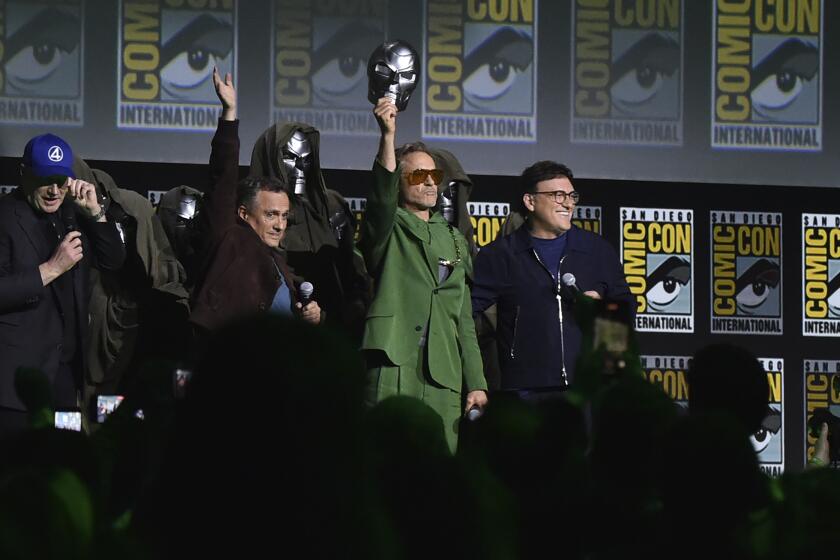Past and future of civil rights come together at ‘Freedom Riders’ screening
The movement that brought Kenyatta McLean, 21, and Robert Singleton, 75, together at a Martin Luther King Jr. tribute Saturday began in the summer of 1961, when college students were recruited to become “Freedom Riders” and streamed by bus into the troubled South to push for abolition of racial separation laws.
With the 50th anniversary of those historic rides approaching, McLean was introduced to Singleton and his wife, Helen, at the Culver City Senior Center. The meeting spurred a cross-generational dialogue about the role of civic engagement and the forms it takes in the era of Facebook and Twitter.
Back in 1961, Singleton headed the UCLA chapter of the NAACP. He was tasked with enlisting youthful idealists to test a U.S. Supreme Court ruling that buses and bus stations could not be segregated. Many of the hundreds of young men and women who answered the call nationwide were beaten or jailed for their activism, but the movement paved the way for the Civil Rights Act of 1964 and the Voting Rights Act of 1965.
McLean, who is majoring in African American studies at UCLA and is chair of the Afrikan Student Union, said she has always regarded the Freedom Riders as “courageous men and women who did the great work of the past.”
“I’ve heard about you,” McLean said to Singleton with a smile. “I believe it is important that we open lines of communication with the older generation to better understand the lessons of their experiences.”
“Well, we have a tremendous amount in common, young lady,” Singleton said. “We’re depending on you and your generation to take the next step with all the communications and research technology you have at your fingertips.”
The Culver City event featured a special screening of the documentary film “Freedom Riders,” followed by personal accounts of the burgeoning civil rights movement recalled by the Singletons and others who put their bodies on the line to bring attention to the evils of segregation.
The film by Stanley Nelson provides a dramatic window into those tumultuous times through contemporary interviews and newsreel footage.
Its stark imagery chronicles the plight of African Americans in Southern states who were oppressed by segregation laws and frequently terrorized by the Ku Klux Klan, which had ties to law enforcement officers throughout the region. Some who spoke out were never seen again.
The college students who volunteered to help them organize politically were confronted by angry mobs and fire hoses, police dogs and night sticks, Molotov cocktails and burned buses.
“We could see the veins popping up on the necks of police officers who were chasing after us,” recalled Mitchell Curry, a student activist in the 1950s who marched alongside King. “Yet, out of our demonstrations and protests a spirit spread throughout the nation to bring about change.”
Among the 400 people in attendance was Rep. Karen Bass (D- Los Angeles), a former community organizer and founder of the Community Coalition in South Los Angeles.
“The new generation of students has an opportunity to take organizing to a whole new level,” Bass said. “It will be fascinating to see all the ways the new technology can be used.”
In May, “Freedom Riders,” which garnered praise at the Sundance Film Festival last year and was nominated last week by the Writers Guild of America for best documentary screenplay, will be televised on PBS. Forty college students will be selected this month to accompany original Freedom Riders in a reenactment of their dangerous journeys.
“I would like to go with them,” McLean said. “It would bring to life all the stories and lingering emotions I grew up with.”
More to Read
Only good movies
Get the Indie Focus newsletter, Mark Olsen's weekly guide to the world of cinema.
You may occasionally receive promotional content from the Los Angeles Times.










